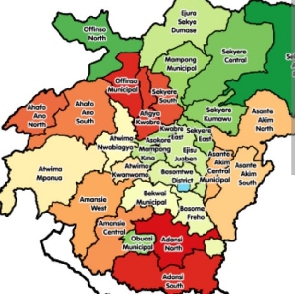Promises have long been the currency of campaigns in the vibrant landscape of Ghanaian politics. Mostly emanating from parliamentary seat aspirants, it is ironic that the fulfilment of these political promises intersects with the daily operations of local government.
In the minds of ordinary Ghanaians, the role of their Member of Parliament (MP) extends far beyond crafting legislation and representing their interests in the august house. Rather, it encompasses the expectation that their MP will be the architect of development, the one who will construct roads, provide essential services and ensure progress within their communities.
However, the task of local development falls not only on the MP but also on the shoulders of Metropolitan, Municipal and District Chief Executives (MMDCEs) for which they play different roles in achieving. This article delves into the actual functions of Members of Parliament and Metropolitan, Municipal and District Chief Executives in local development.
Society has, for a long time, stuck to the misconception that Members of Parliament play a major and more significant role in local development. People strongly believe that the MP is to formulate and implement developmental policies. This has made the position of Member of Parliament an expensive one as the candidate has to build social amenities to please the constituents. Due to this, people do not know that the MMDCEs are more important in local development.
By law, they carry out the administration and development of every district in Ghana. The ignorance of many Ghanaians to this truth has rendered most MMDCEs lazy and incompetent. This should not be so!
The office of the Member of Parliament, a representative of a constituency in parliament, is created by articles 94, 97 & 100 of the 1992 constitution. The functions of a member of parliament are classified into four: legislation, supervision, representation and deliberation. Members of parliament exercise their legislative mandate by making additional or subtractive contributions at certain stages of passing a bill into law. Concerning supervision, MPs, through committees, examine in greater detail, legislative and monetary proposals from the executive and its agencies.
They also vet and approve government appointees and the annual budget. For representation, an MP is a representative of his constituents and he/she must interact with them at regular intervals on national issues and to address concerns that may arise in parliament. On deliberation, members of parliament partake in all debates on matters of national and international importance forwarded to the house.
In contrast, Metropolitan, Municipal and District Chief Executives are presidential representatives at the local level. They are responsible for the overall administration and governance of their respective metropolitan, municipal or district areas. The MMDCEs form the District Assemblies overseeing 261 districts; 145 ordinary districts, 109 municipal districts and 6 metropolitan districts.
The Local Governance Act, 2016 (ACT 936), by sections 12 & 13, enlists the functions of the District Assemblies: being responsible for the development, improvement and management of human settlements and the environment in the district; formulation and execution of plans, programmes and strategies for the effective mobilization of the resources necessary for the overall development of the district; initiating programmes for the development of basic infrastructure and provide municipal works and services in the district; cooperating with the appropriate national and local security agencies for the maintenance of security and public safety in the district; initiating and encouraging joint participation with other persons or bodies to execute approved developmental plans, a few to mention.
Even though the MP, by virtue of being a non-voting ex-officio member of the district assembly contributes (only to the extent of the limitations of the District Assemblies Common Fund) to developmental projects, it is not his duty to undertake them. He merely assists the local chief executives.
MPs focus on national-level advocacy and policymaking, while MMDCEs are directly involved in implementing and managing local development initiatives. Hence, they work together but in different capacities to contribute to local development in Ghana. We should then stop forcing MPs to carry the heavy burden of local development alone and ensure that MMDCEs execute their duties efficiently.
Opinions of Tuesday, 19 September 2023
Columnist: Emmanuella Amoako Kwatia















